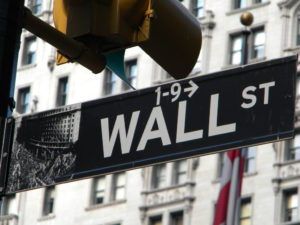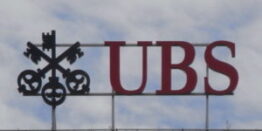

As Justice Louis D. Brandies once said not in a legal opinion, but in a book, “Sunshine is said to be the best disinfectant; Electric light the most efficient policeman,” Brandies, Other People’s Money (1914).
The Responsibility of the SEC
It is the responsibility of the United States Securities & Exchange Commission to oversee securities Self-Regulatory Organizations, including the Financial Industry Regulatory Authority or FINRA, which is the largest independent regulatory organization for securities firms doing business in the United States.
The Financial Industry Regulatory Authority
FINRA, formerly the National Association of Securities Dealers and the New York Stock Exchange is owned by its members, the securities industry. FINRA’s “mission is to protect America’s investors by making sure the securities industry operates fairly and honestly.” FINRA is also charged with administrating arbitration, mediation, and other alternative dispute resolution services through FINRA Dispute Resolution, Inc.
Public Investors
Every public investor or customer of a brokerage firm, when they open their account, agree to give up their claims in court, before a judge and a jury, and instead agree to arbitrate their claims, including claims for the sale of defective or unsuitable investments, or for the breach of fiduciary duty, before a panel of FINRA arbitrators, which until recently also included at least one arbitrator that actually works or derives a substantial portion of their income from the securities industry.
FINRA of course is a private organization, which in the past, other than what it posts in its public statements and rules, refuses to comment on the inside process on the purportedly random generation of arbitrator lists, arbitrator selection, once ranked, in that list, or the arbitrator replacement or removal process. (See Wall Street’s Captive Arbitrators Strike Again).
However, the United States Securities & Exchange Commission has complete oversight with respect to the operation of FINRA.
Public Investors Bar Association
PIABA is a bar association whose members represent public investors in disputes with the securities industry. PIABA’s mission is to serve the interests of the public investor in securities and commodities arbitration by protecting public investors from abuses in the arbitration process, such as those associated with the arbitrator selection process, document production, and discovery; making securities and commodities arbitration as just and fair as systematically possible; and creating a level playing field for the public investor in securities and commodities arbitration.
I am also proud to be a member of PIABA.
PIABA Request to the SEC
On February 9, 2010, PIABA submitted a written request to the SEC under FOIA (hereafter “FOIA Request”) seeking, for the period of January 1, 2000 to the date of the response:
- Documents relating to audits, inspections, and reviews conducted by the [SEC] in connection with the arbitrator selection process of FINRA
- Documents relating to audits, inspections, and reviews conducted by the SEC in connections with FINRA’s appointment of replacement arbitrators in the event that an arbitrator is stricken as part of the list selection process or removed for cause
- Documents relating to audits, inspections, and reviews conducted by the SEC in connection with FINRA’s policies, procedures, and processes in deciding causal challenges to an arbitrator’s appointment
- Documents relating to audits, inspections, and reviews conducted by the SEC in connection with FINRA’s internal policies and procedures regarding arbitrator selection, appointment, and replacement
- Documents relating to audits, inspections, and reviews conducted by the SEC in connection with FINRA’s pre-approval background check on arbitrator applicants
- Documents relating to audits, inspections, and reviews conducted by the SEC in connection with FINRA’s public arbitrator pilot program
On March 24, 2010, the SEC’s FOIA/Privacy Act Office, in a letter to PIABA, announced that it was withholding all records responsive to PIABA’s request, stating that the disclosure of the documents sought “would undermine FINRA’s credibility as a “financial institution” and would they subvert the cooperative relationship between” FINRA and the SEC.
PIABA Files Lawsuit Against SEC
PIABA subsequently sued the SEC in the District of Columbia, and on March 14, 2013, United States District Judge Beryl A. Howell (who coincidentally was a senior advisor to US Senator Patrick Leaky, and while working for Senator Leahy, helped craft the E-FOIA amendments, which expanded electronic access to government records and also helped Sen. Leahy fend off proposals to impose new limits on the FOIA) concluded that the SEC is entitled to summary judgment on the PIABA’s FOIA claim, primarily because all records relating to the SEC’s examination reports — including reports relating to the administrative functions of FINRA — are exempt from disclosure under the FOIA.
Judge Howell
Judge Howell was not unsympathetic to PIABA’s request. However, as reasoned in her 26 page opinion, Judge Howell wrote “Congress has left no room for a narrower interpretation,” and therefore the plaintiff’s arguments must be directed at Congress, rather than the courts.”
Dodd-Frank Wall Street Reform & Consumer Protection Act
As noted, by way of background, Congress enacted a confidentiality provision in the Dodd-Frank Wall Street Reform and Consumer Protection Act (Dodd-Frank), Pub. L. No. 111-203, 124 Stat. 1376 — 2223 (2010), which amended the Securities Exchange Act to state that:
[the SEC] shall not be compelled to disclose records or information obtained pursuant to 15 U.S.C. Sect: 78q(b)], or records or information based upon or derived from such records or information, if such records or information have been obtained by [the SEC] for use in furtherance of the purposes of this title, including surveillance, risk assessments, or other regulatory and oversight activities.
See Dodd-Frank Sect: 929I, 124 Stat. at 1858 (repealed 2010).
This provision was inserted into the Dodd-Frank bill at the request of the SEC, but it immediately came under scrutiny when the SEC invoked it in a civil lawsuit with Fox Business Network to withhold documents regarding the agency’s handling of the Bernie Madoff case. See 156 Cong. Rec. H6953 (daily ed. Sept. 23, 2010) (statement of Rep. Barney Frank)(which sought information related to institutional problems, fairness and transparency, such as conflicts of interest, that likely bear indirectly on financial matters and might require further regulation).
In her testimony before the House Financial Services Committee, then SEC Chairman Mary Schapiro defended section 9291 by testifying that it “was designed to improve [the SEC’s] examinations of regulated entities by clarifying the protections afforded to regulatees that provide the Commission with sensitive and confidential materials as part of those examinations.”
Chairman Mary’s old job: she was the president of FINRA, whose board awarded her a $9 million bonus when she left that post in January 2009.
Accordingly, the SEC’s oversight more specifically, the documents relating the SEC’s audits, inspections, and reviews of the arbitrator selection process by FINRA shall remain a secret and never see the light of day.
Guiliano Law Group
If you have been the victim of securities fraud you should consult with an attorney. The practice of Nicholas J. Guiliano, Esq., and The Guiliano Law Group, P.C., is limited to the representation of investors in claims for fraud in connection with the sale of securities, the sale or recommendation of excessively risky or unsuitable securities, breach of fiduciary duty, and the failure to supervise. We accept representation on a contingent fee basis, meaning there is no cost unless we make a recovery for you, and there is never any charge for a consultation or an evaluation of your claim. For more information contact us at (877) SEC-ATTY.







